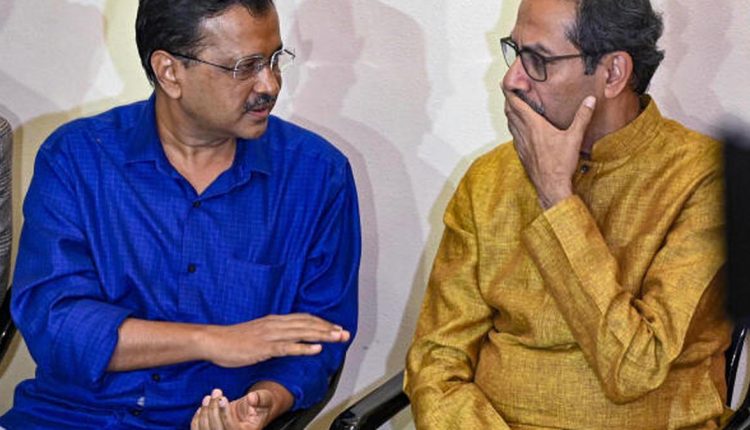
Delhi CM Arvind Kejriwal and former Maharashtra CM Uddhav Thackeray during an interaction with the media at Matoshree in Mumbai, Friday, Feb. 24, 2023.
| Photo Credit: PTI
Delhi Chief Minister Arvind Kejriwal and his Punjab counterpart Bhagwant Mann met Shiv Sena (UBT) chief Uddhav Thackeray at Matoshree, the Thackerays’ private residence, in Mumbai on Friday.
Mr. Thackeray invited Mr. Kejriwal and other AAP leaders for tea at his residence, and politically, the meeting was considered important as efforts are being made to unite the opposition in the country.
It also came at a time when the Shiv Sena, the party formed by Mr. Thackeray’s father, the late Bal Thackeray, in June 1966, has been taken over by rival Chief Minister Eknath Shinde following the Election Commission’s recent order, and in the national capital the Kejriwal government is embroiled in the alleged snooping case and liquor scam.
“We wanted to meet for a long time. There is no need to say why we wanted to meet,” the 62-year-old Thackeray said after the meeting. He said several senior leaders from across the country are contacting him of late to meet.
Pat for Uddhav
Praising Mr. Thackeray, the Delhi Chief Minister said, “the way Uddhav ji controlled the coronavirus pandemic when it was at its peak was laudable. I have no hesitation in saying that we from Delhi learnt a lot from Mumbai and Maharashtra.”
He said that at the meeting, they discussed various issues, including how the Central government is ‘mortgaging’ the country to ‘save the capitalists’, and the current situation in the country. “They [the NDA government] have failed to fulfill several promises made by them,” Mr. Kejriwal said.
When asked about the current political situation (mayoral election) in Delhi, the AAP National Convener said that people of Delhi had given them a chance, but the BJP had put hurdles in the mayoral election.
Meanwhile, netizens and several political leaders criticised Mr. Mann for his visit to Mumbai, when a massive clash broke out between radical Khalistani leader Amritpal Singh’s followers and the Punjab police over the arrest of Lovepreet Toofan in an alleged kidnapping case. However, Mr. Mann said he was here on a two-day visit to attract investments to the State.


